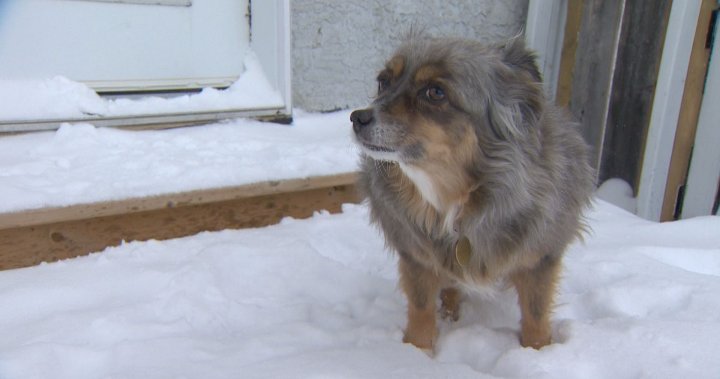Protecting our beloved pets and wildlife from the harsh realities of winter is a crucial responsibility. While we humans bundle up in layers of warm clothing and seek refuge in heated spaces, our furry and feathered friends face unique challenges in navigating the frigid temperatures. Understanding these challenges and implementing appropriate measures can mean the difference between life and death for these vulnerable creatures. This comprehensive guide delves into the specific risks posed by extreme cold to various animals, including cats, dogs, birds, squirrels, and rabbits, and offers practical advice on safeguarding their well-being during the winter months.
Domestic animals, particularly dogs and cats, rely on our care for their survival, especially when the mercury plummets. The Society for the Prevention of Cruelty to Animals (SPCA) emphasizes the importance of adapting our routines to protect our pets from the dangers of extreme cold. For dogs, this means significantly shortening outdoor walks and providing stimulating indoor activities to compensate for the reduced exercise. Interactive toys, puzzle feeders, and even short training sessions can provide mental and physical stimulation, preventing boredom and frustration while keeping them safe and warm indoors. The SPCA suggests that just 15 minutes of engaging play with interactive toys can be equivalent to an hour of physical activity, making it an excellent alternative to long walks in freezing temperatures.
For cats, the risk of frostbite is a serious concern. Their exposed ears and tails are particularly vulnerable to the damaging effects of extreme cold. Frostbite can lead to tissue damage and, in severe cases, the affected areas may even fall off. Therefore, it’s crucial to keep cats indoors during periods of extreme cold. Providing a warm, comfortable indoor environment with plenty of food, water, and a cozy resting place is essential for their well-being. Regularly checking their ears and tails for any signs of frostbite, such as pale or discolored skin, is also recommended. If any suspicious signs are observed, immediate veterinary attention should be sought.
Beyond cats and dogs, smaller animals like rabbits are also highly susceptible to the dangers of winter. The SPCA has reported a distressing trend of people abandoning rabbits in boxes outside the animal shelter, leaving them exposed to the harsh elements. This callous act puts these delicate creatures at immense risk of hypothermia and frostbite. The SPCA urges people to consider the well-being of these animals and to surrender them responsibly, ensuring they are brought inside the shelter where they can receive appropriate care. Additionally, those who keep rabbits as pets should take extra precautions during winter, ensuring their hutches are well-insulated and protected from drafts and snow accumulation.
Wild animals, such as birds and squirrels, have evolved remarkable strategies for surviving harsh winter conditions. Birds rely on a combination of physiological adaptations and behavioral strategies. Their feathers provide excellent insulation, trapping warm air close to their bodies. They also fluff up their feathers, creating a thicker layer of insulation. Furthermore, many bird species huddle together for warmth, sharing body heat and conserving energy. Squirrels, on the other hand, rely on their stored food caches and their ability to enter a state of torpor, a period of reduced metabolic activity, to conserve energy during periods of extreme cold.
Despite their natural adaptations, both birds and squirrels can benefit from human assistance during exceptionally cold periods. Providing supplemental food sources, such as bird feeders filled with high-energy seeds and suet, can help birds maintain their energy levels and survive the harshest conditions. Similarly, offering squirrels nuts and seeds can supplement their dwindling winter stores. It’s important to avoid offering processed foods, bread, or other unsuitable items. Providing a source of clean, unfrozen water is also crucial for both birds and squirrels, as dehydration can be a significant risk in winter.
In conclusion, safeguarding the well-being of animals during winter requires a multifaceted approach, encompassing responsible pet ownership practices, awareness of the specific needs of different species, and an understanding of the natural adaptations of wildlife. By taking proactive steps to protect our furry and feathered friends, we can ensure their survival through the coldest months and contribute to a more compassionate and responsible coexistence with the animal kingdom. This includes adapting our routines for domestic pets, providing supplemental resources for wildlife, and being mindful of the vulnerability of abandoned or stray animals. Through education, awareness, and practical action, we can make a tangible difference in the lives of these creatures and ensure their safety and well-being throughout the winter season.










